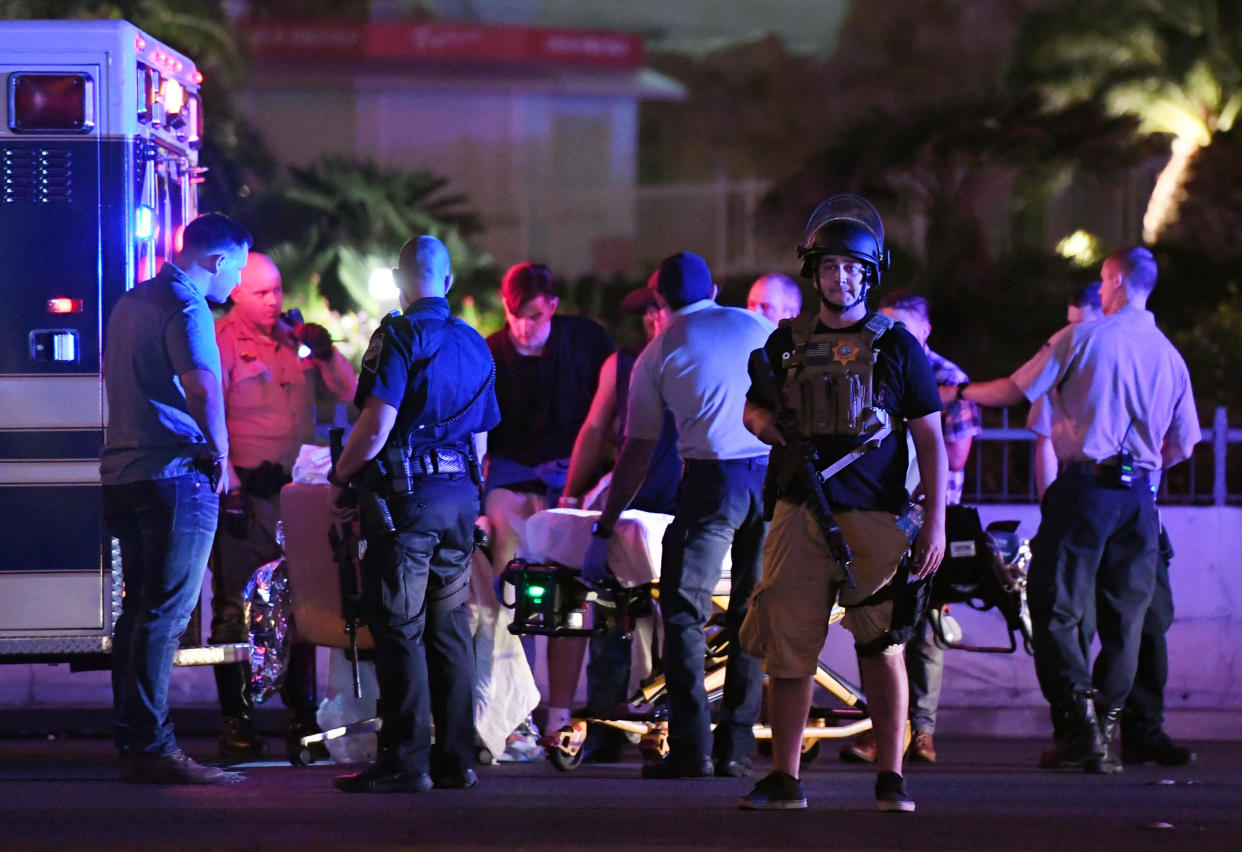Las Vegas Trauma Surgeons Address Shooting

Las Vegas continues to reel in the aftermath of the deadliest shooting in modern American history: at least 59 people were killed and 527 more injured on Sunday when a gunman opened fire at a country music festival on the strip. Now, trauma surgeons who dealt with victims are coming forward to describe what they witnessed that night.
"I honestly haven’t had a chance to fully process this tragedy," Dr. Syed Saquib told ABC News. Though he was on call at the University Medical Center at the time people started coming in with injuries, there was such an influx of patients that many more doctors were immediately called in.
"We were seeing all kinds of injuries. Gun shots to the head, chest, abdomen and pelvis and extremities," he continued. "[We had] walking wounded, patients that were brought in by other family, friends ... people coming through ambulance, it was a pretty surreal scene.
Dr. Jay Coates told Talking Points Memo he had "no idea who [he] operated on. They were coming in so fast, we were taking care of bodies. We were just trying to keep people from dying.” Coates, who was working at the same hospital as Saquib, said it was apparent from the first patient he operated on that the weapon used was not "a normal street weapon. This was something that did a lot of damage when it entered the body cavity."
Toni Mullan, a registered nurse at the University Medical Center, explained the chaos she witnessed to the New York Times: "We couldn’t hear each other talk, it was that crazy,” she said of the sound of emergency bleepers sounding simultaneously. "If a nonmedical person were to be sitting there watching this, they would think nothing was being accomplished."
In an interview with USA Today, Mullen added, "We have traumas every single day, just not of this magnitudd. At any given point in time, we’ve had nine gun shot wounds come here. We’ve had three motor vehicle crashes that have three or four victims. So we fill up, but just not on this level."
Another nursing supervisor at UMC, Brad Skilling, shared, "We had a few people who had been trampled, a few people who had gotten injured climbing over a fence. But like 99 percent of it was gunshot wounds." He also described the patients arriving in three waves; those victims who were most seriously injured at first, delivered mostly by friends, family, or strangers. Then hours later, victims with comparatively less severe injuries, as well as those who were in hiding or had fled the initial scene, found by police. UMC also received transfers from other hospitals; they never closed their own doors.
Syed Saquib, a doctor who's worked there for about a year, shared, "Granted, we had a lot of patients come in very quickly, but we were right on top of things form the very beginning. It was a little bit of controlled chaos, but the response was pretty remarkable. Those that could be saved were saved."
Those who are still trying to locate missing family or friends can call 1-866-535-5654.
Follow Tess on Twitter.
You Might Also Like

